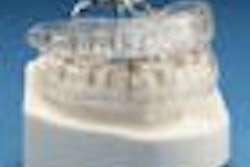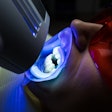A small implant being studied for the treatment of central sleep apnea is showing significant promise, according to researchers from the Ohio State University Wexner Medical Center.
William Abraham, MD, director of the university's division of cardiovascular medicine, presented his group's finding September 23 at the Heart Failure Society of America's annual scientific meeting.
Unlike the more common obstructive sleep apnea, in which the airway gets blocked during sleep and causes pauses in breathing, central sleep apnea is more dangerous because the brain's signals to tell the body to breathe get interrupted, the researchers noted. Patients with this type of apnea generally don't snore so they are more difficult to diagnose, they explained.
Dr. Abraham and other cardiovascular researchers at 11 centers around the world tested the feasibility, safety, and efficacy of a new transvenous phrenic nerve stimulator made by Respicardia. The device resembles a pacemaker in that it delivers a regular signal to stimulate the diaphragm to breathe during sleep.
In the pilot study, 47 patients were implanted with the device and evaluated for six months. The implant was placed below the collar bone and a transvenous stimulator lead was positioned near the phrenic nerve. After a one-month healing period, the device was turned on and programmed to the patient's sleep habits.
The researchers reported "significant" results, including a 56% reduction in overall apnea events per hour and more than 80% reduction in central sleep apnea events. Now they are comparing the device to current medical therapy for central sleep apnea in a larger randomized, controlled clinical trial.
The research is being funded by Respicardia. Dr. Abraham is a consultant for the company.



















